
11 minute read
The Church of Today and Tomorrow
FOR 40 YEARS, LUTHERAN YOUTH FELLOWSHIP HAS RAISED UP STRONG LEADERS FOR THE CHURCH. The Church of Today and Tomorrow

Advertisement
James Wright (left) of Madison, Neb., and Cullen Flieth from Jamestown, N.D., work together during a March 13 session at the Lutheran Youth Fellowship’s 2020 Leadership Development Training in St. Louis.
Aidan Quirk, a Lutheran Youth Fellowship executive team member from Bismarck, N.D., leads a small-group discussion during the 2020 Leadership Development Training in St. Louis.

“ Y outh are not just ‘tomorrow’s church.’ They’re a part of the church now,” commented
Jessica Bordeleau, gesturing toward the group deep in conversation behind her.
On a mid-March day in
St. Louis, small groups gathered around tables in the
Pallottine Renewal Center.
The scene looked a lot like any youth group meeting: high school youth, adult leaders and pastors in the midst of sincere discussion and occasional bouts of laughter.
But here there was something special. A high schooler sat at the head of each table, leader’s guide in hand, guiding the discussion.
“In our session this morning, we heard a lot about the tension in our lives between being ‘sinners’ and ‘saints.’ How do you see that tension play out in your own lives?” asked Aidan Quirk, a high school junior from
Bismarck, N.D., of his group.
This is what the Lutheran
Youth Fellowship (LYF)
Leadership Development retreat is all about. It has helped prepare LCMS youth for leadership for 40 years. Countless church workers and LCMS members number among its alumni, and a strong community of dozens of LCMS youth make up its ranks today.
40 Years of Fellowship
After parting ways with the Walther League in 1968, the LCMS had no national youth organization and few national youth opportunities — and this lack was felt.
Then, in 1978, Lutheran Youth Fellowship was born.
The Rev. Dr. Terry Dittmer, who oversaw LYF for decades until his retirement in 2016, said that it didn’t take long for LYF leaders to recognize that young people were taking on leadership roles not only in the church but also in their schools and communities, and that LYF could help.
“In the ’70s and the years following, youth didn’t necessarily need another social organization to be a part of. But they did value leadership
— Rev. Dr. Terry Dittmer training. They did value being a part of the church. … They had sophisticated questions, and LYF became a way to address some of those,” said Dittmer.
The first official LYF Leadership Development retreat was held in 1980, and it has remained essentially the same ever since. LCMS Youth Ministry develops a resource on a topic such as witnessing, apologetics or an aspect of Lutheran theology. (This year’s resource, “Promises Delivered,” focused on baptismal identity.) An LYF “executive team” of five youth, elected every three years, are trained in the new resource. Then during the four-day Leadership Development event, the executive team, in turn, trains their peers in the resource.
And it spreads from there. LYF participants return home and find opportunities to train more youth in the resource at youth group retreats, in Sunday school classes and at district youth events.
“It has a ripple effect,” said the Rev. Steve Richardson, associate pastor of St. Paul Lutheran Church in Montgomery, Ala., who has
— Rev. Steve Richardson
brought youth from his congregation to LYF training for the past five years.
While LYF’s focus is primarily on leadership training, this does not keep it from fostering a strong community as well. In fact, these training events are the perfect opportunities for strong and lasting friendships to grow.
“Seeing all these 40 years of [LYF participants] get together at events like the [LCMS] Youth Gathering — they’re like family,” said Richardson. “It’s a brotherhood, it’s a sisterhood, a family of Christians who want to change the world for the better.”
“The youth here see that youth are leading. And that empowers them to want to go back to their church and help lead,” said Bordeleau, who has worked with LYF training events in different capacities for 15 years.
LYF’s leadership training is organized around the premise that youth can realize their potential as leaders only when those skills are recognized and allowed opportunities to develop — when youth can see other youth lead and are given chances to lead themselves.
“My biggest takeaway from LYF has been just the idea that youth can lead,” said Quirk, who is a member of the executive team.
“The fact that it’s youth leading youth just changes their perspective,” said Richardson. “They’re being led by their peers, and also have the adult leaders in the room, reinforcing them. When I’m a pastor and I’m sitting there saying,

Ginger Richardson (left) and Joanna Shaw share a moment during an exercise at the LYF Leadership Development Training on March 13.
‘Yeah, that’s an awesome observation,’ these kids are going, ‘Wow, I guess I do have something to contribute.’”
When Richardson started bringing youth from his congregation to the LYF training five years ago, he saw the change immediately.
One of his young members, Jackson Smith, who now serves on the LYF executive team, was eager to put his newly realized leadership skills into play as soon as they returned to Alabama.
“We got back, and he started hitting up key leaders in the church, asking, ‘How can I help you do your job?’” said Richardson.
Smith quickly took over operation and organization of St. Paul’s acolyte program, training young members of the congregation to acolyte and managing the scheduling.
“Whereas youth can be leaders tomorrow, I think it’s important that we’re leaders today,” said Smith. “Because if we’re leaders today, that just better equips us to be leaders in the future.”
The Next Generation of Leaders
Youth are a part of the church now. But they are also “tomorrow’s church.”
LYF participants have gone on to become pastors, teachers, directors of Christian education, district presidents, seminary and Concordia University System professors, and missionaries, as well as faithful laypeople working in a variety of occupations.
“The LYF training over 30 years ago,” said the Rev. Dr. Lee Hagan, president of the LCMS Missouri District, who attended the training in the late ’80s, “was the first time that, as a teenager, someone was talking to me about being a leader. That was really significant, this idea that I could have a role to play, even as a young person.”
The Rev. Dr. Erik Herrmann, professor
Right: Cullen Flieth from Jamestown, N.D., takes notes during the training event.


Below: Nate Laesch of Florissant, Mo., and Neveah Schreiber of Worthington, Minn., work together during an exercise.
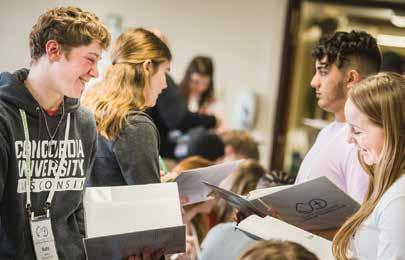
of historical theology at Concordia Seminary, St. Louis, attended the event every year from age 15 until his sophomore year of college, in the early ’90s.
“The support that adults gave me at LYF and when I came back to my district was probably the single most important encouragement toward me going into the ministry,” Herrmann said.
“Did I say anything really important as a youth? Probably not. … But all these various opportunities we have for youth — the National Youth Gathering, district youth gatherings — I’m not sure the programming of any one of those things makes as big a difference as the fact that they exist, that youth have adults around them who respect them, and can say, ‘Oh, this is a possibility for me.’”
Herrmann and Hagan can still list the names of those who participated in LYF the same years they did — many of whom are their peers in church work today. They can also name current LYF participants. Both have watched one or more of their children attend the training event in the past few years.
“That’s a big part of LYF training, to talk about vocation,” said the Rev. Dr. Mark Kiessling, director of LCMS Youth Ministry. “To help them understand how God is using them in their current vocation, and also give them an eye toward their future vocations, whether that’s church careers, doctors, engineers or anything else.”
By the grace of God, across the country, 40 years of LYF alumni and current participants are using their leadership skills to serve their churches and their neighbors. Through the ministry and community of LYF, God is raising up strong leaders for His church.
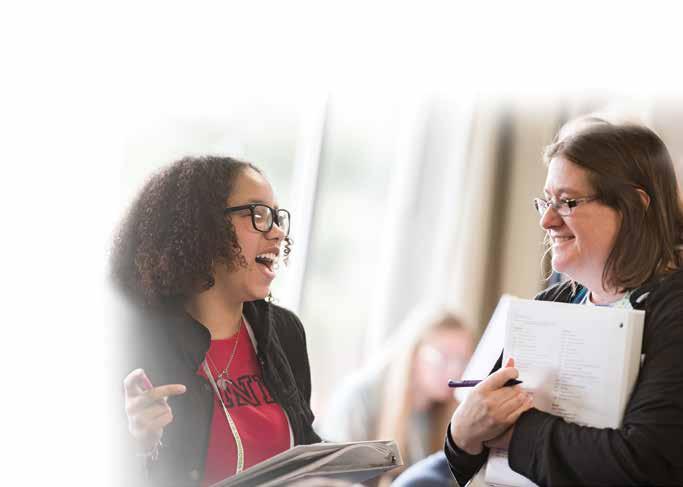
Serving Soldiers Even During a Pandemic

BY MEGAN K. MERTZ
A military deployment is never easy. It’s challenging for the service member and his or her family. But the coronavirus (COVID-19) pandemic has added an extra layer of anxiety for many serving in the U.S. military as they worry about their own health and the safety of their loved ones back home.
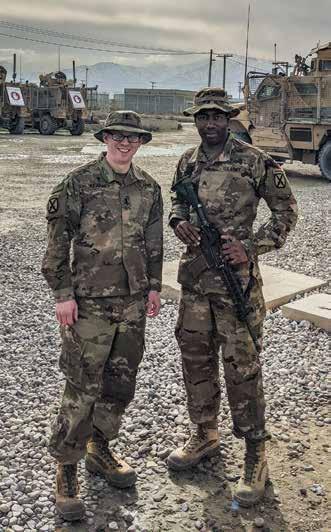
Thanks be to God, The Lutheran Church—Missouri Synod’s (LCMS) 200 military chaplains are there alongside members of the military, providing the hope and comfort of the Gospel — even during a pandemic.
“One of the great things about being an Army Chaplain is that I’m able to go to people where they live, where they work and where they play,” said Chaplain (1 st Lt.) Michael Kearney, who deployed to Afghanistan in March. “I’ve been able to bring Christ to pilots on the flight line, soldiers gearing up to go outside the wire, mechanics and engineers as they fix and build equipment, soldiers and civilians sitting in quarantine, and people going about their lives in a deployed setting.”
Even on a military base in Afghanistan, Kearney’s ministry has been impacted by the pandemic. The U.S. military implemented new measures to keep soldiers safe for duty, and Kearney spent two weeks in a precautionary quarantine upon his arrival. Once cleared, he began offering virtual services as well as in-person services by appointment. He works a 12-hour shift, starting
I've been able to bring Christ to pilots on the flight line, soldiers '' gearing up to go outside the wire, mechanics and engineers as they fix and build equipment, soldiers and civilians sitting in quarantine, and people going about their lives in a deployed setting.” —Chaplain (1st Lt.) Michael Kearney (pictured far left)
at noon, to better accommodate the schedules of his flock.
He also is responsible for the base prayer box, where people can leave prayer requests. “Seeing and offering these prayers has humbled and inspired me. Many people are praying for their families back home, their livelihoods here, for specific needs or the general welfare,” he said, noting that he loves to see prayers of thanksgiving come through when a prayer has been answered.
Soldiers have reacted to COVID-19 in different ways. Some have reflected on their lives and looked to their chaplain to answer questions about the faith. For many soldiers, the chaplain and religious affairs specialist — who together make up the Unit Ministry Team — may be the first people of faith they have gotten to know.
“This time has made me a sounding board as soldiers are reevaluating priorities and looking at what they want to do next when this mission ends and their ‘regular’ life starts back up again,” said Chaplain (Col.) Robert Carter Jr., who is in the Army Reserve This time has made '' me a sounding board as soldiers are reevaluating priorities and looking at what they want to do next when this mission ends and their ‘regular’ life starts back up again.” —Chaplain (Col.) Robert Carter Jr.
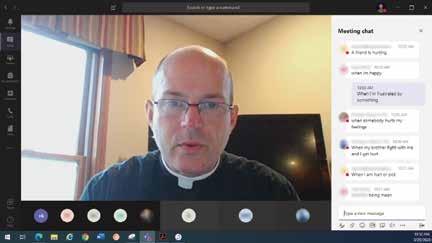
in addition to serving as director of Pastoral Care for Montefiore Nyack Hospital in Nyack, N.Y. He also leads Sunday worship at the Old Cadet Chapel at the United States Military Academy, West Point.
Prior to being mobilized and sent to New Orleans to assist FEMA with the COVID-19 response, Carter was already adapting to the emerging pandemic. At the hospital, he was wearing personal protective equipment, carrying copies of the liturgy to avoid bringing his Pastoral Care Companion into patient rooms, and helping patients connect with loved ones virtually.
Carter says that many in his unit feel proud to be helping people during this time, but it’s not easy to leave their family members on their own, especially now. He understands, since his wife and five children are still in New York state. “One of the scariest parts of service in the military is you have to recognize that your family learns how to exist without you,” he said.
In addition, the isolation and uncertainty of the pandemic have increased some people’s struggles, whether that’s with substance abuse, thoughts of suicide or other issues. As Carter provides individual counseling and spiritual care, he’s always ready to refer someone to the right resources when he notices these warning signs.
Whether conducted in person or online, the task of Carter, Kearney and the Synod’s other chaplains is still the same, as they care for their flocks and share the hope of the Gospel. “The Chaplain Corps is committed to … cultivate community, physically and virtually, regardless of the operating conditions,” Carter said.
Chaplain (Col.) Robert Carter Jr. (far right) stands with the 377th TSC Chaplain Directorate at Naval Air Station Joint Reserve Base New Orleans.
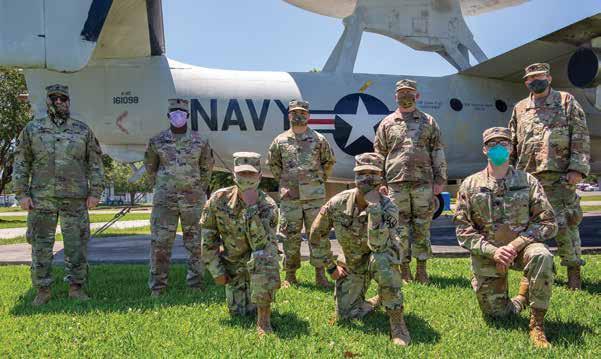

| LEARN MORE | lcms.org/armedforces



